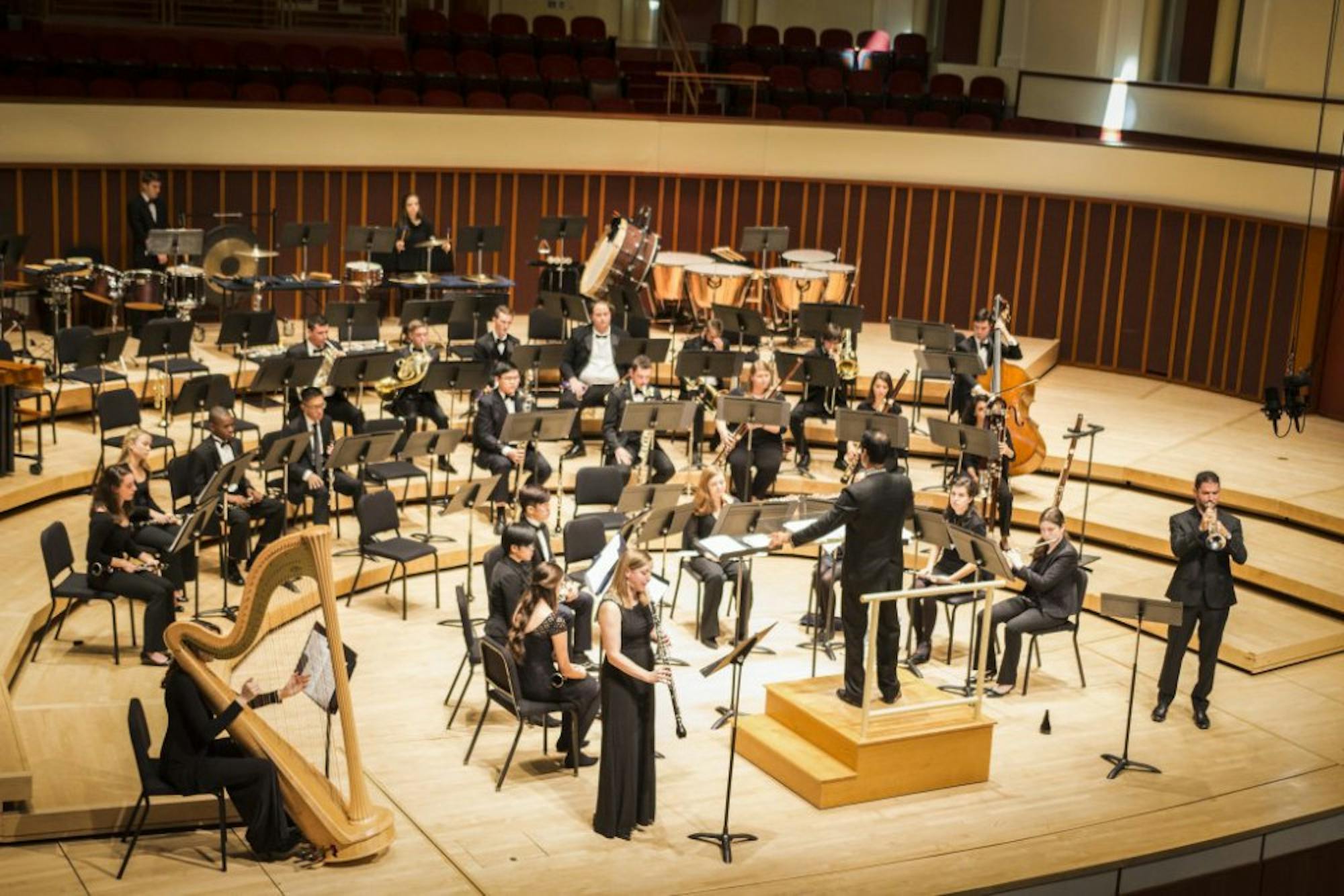Without live concerts and in-person rehearsals, Emory’s Wind Ensemble, Concert Choir and Symphony Orchestra have struggled to replicate the traditional musical experience and camaraderie found during in-person instruction.
“Never in my wildest dreams did I imagine that singing is a dangerous thing to do,” said Director of Emory Concert Choir Eric Nelson. “It’s been some version of awful to not be able to do those things out of enjoyment.”
Nearly halfway through the semester, the directors of all three ensembles have toiled to reenergize students and foster a meaningful community.
“There are things that you can do academically that are related to the discipline, but it’s just not the same,” Nelson commented. “The heartbreaking thing is that everybody is signed up for choir and we’re enjoying being together, but it’s just not choir.”
However, he praised the University for its handling of the situation and appreciated the online class preparation training faculty members received.
“The plan is working okay,” Nelson said. “I think the choices are good ones, and I don’t think more time would have led to different choices.”
Director of Orchestral Studies Paul Bhasin, who conducts the Symphony Orchestra, echoed these sentiments.
“Emory is doing an amazing job with everything they’ve undertaken,” Bhasin said. “I am very happy Emory waited until the last minute because they were looking at public health data that centered on student experience and their safety.”
Both the directors and Wind Ensemble Conductor Tyler Ehrlich looked to the bright side of using technology in their classrooms. The unconventional semester brought newfound student connections for Ehrlich in a “very low-pressure” virtual environment. He attempts to “foster community” in the ensemble through the use of breakout rooms, Google Slide introductions and Kahoot games.
“Everybody would prefer plan A, which is in-person music-making, but I feel the students have had some revelations about what the experience is like — not just as a performer but also as a conductor and an audience member,” Ehrlich said. “[These] are the additional lenses I want the students to experience the music-making process through.”
Nelson and Bhasin emphasized the opportunity for students to connect with professional musicians and conductors from around the world via Zoom. The Concert Choir recently held a lecture and Q&A session with composer and Emory alumnus Joel Thompson (10C, 13G).
“Students are getting masterclasses with world-renowned musicians like the New York Philharmonic Orchestra, San Francisco Symphony Orchestra, Chicago Symphony Orchestra, Atlanta Symphony Orchestra and the Vega Quartet,” Bhasin said. “In a normal year, 90% of this would not have happened.”
To further diversify and enrich his students’ learning experience, Ehrlich focuses his teaching on score studies, or analyzing the composite of the musical parts in an ensemble. He hopes to elevate his students’ musicianship through learning based on the repertoires and interpretive decisions of conductors.
Highlighting the importance of musical and technical skills needed for future in-person programming, Bhasin said students could expect the music department to employ new learning techniques.
“They’re certainly not treading water or finding arbitrary things to do. It’s all deep and meaningful, just not everyone in the same room,” Bhasin said.
Nelson emphasized his main goals of maintaining the academic, musical and social well-being of his students. He meets with the 15 first-year students of the Concert Choir for weekly in-person rehearsals but teaches the rest of the ensemble through Zoom.
“In some ways, it might even be better because I’m able to work with freshmen by themselves and meet them where they are, and not just imply to them to catch up,” Nelson said.
For their upcoming performances, Nelson plans to give musical instruction through video recordings and have students compile individual recordings into a comprehensive piece using sound design software. Bhasin has implemented a similar instruction style but utilizes more direction from his section leaders. Rather than putting together a virtual performance, Ehrlich has chosen to compile past recordings for the upcoming fall concert in order to reduce the pressure on his musicians.

Graham Crain (22B), a trombonist in the Wind Ensemble and Symphony Orchestra, commented on the positive takeaways from being involved in both groups.
“The Wind Ensemble is more social and is more of a take away from academics, but it’s hard to say which one’s better because I really enjoy playing and the rigor of it, but also fun and relaxing,” Crain said.
California-based Trisha Sengupta (24C), a bassoonist, credits her involvement in both ensembles for making her experience more well-rounded.
“I like orchestra because we’ll eventually have a final product, and when I’m recording myself, there’s a lot of new things I realize I have to consider and listen for,” Sengupta said. “In band, I’ve never had to do score studies … it’s giving me a new perspective.”
Sengupta also discussed the difficulties of making friends while remote, citing different time zones and her introverted personality for keeping her from “build[ing] relationships.”
In an effort for upperclassmen to connect with first-years, the social committee in the Symphony Orchestra plans to implement a one-on-one mentoring program, “Music Mates.” Crain hopes to meet more people through it.
“The theme of the semester is acceptance and love and support and community,” Ehrlich said. “My hope is that it’ll foster more appreciation of being together and making live music together.”
Nelson was “moved” by the first-year and returning members who chose to remain active within the choir despite current circumstances.
“It just means a lot to me,” Nelson said. “I’m so amazed that rather than washing their hands of it and walking away, they are absolutely engaged in making the best of it. And what more could we ask for?”




